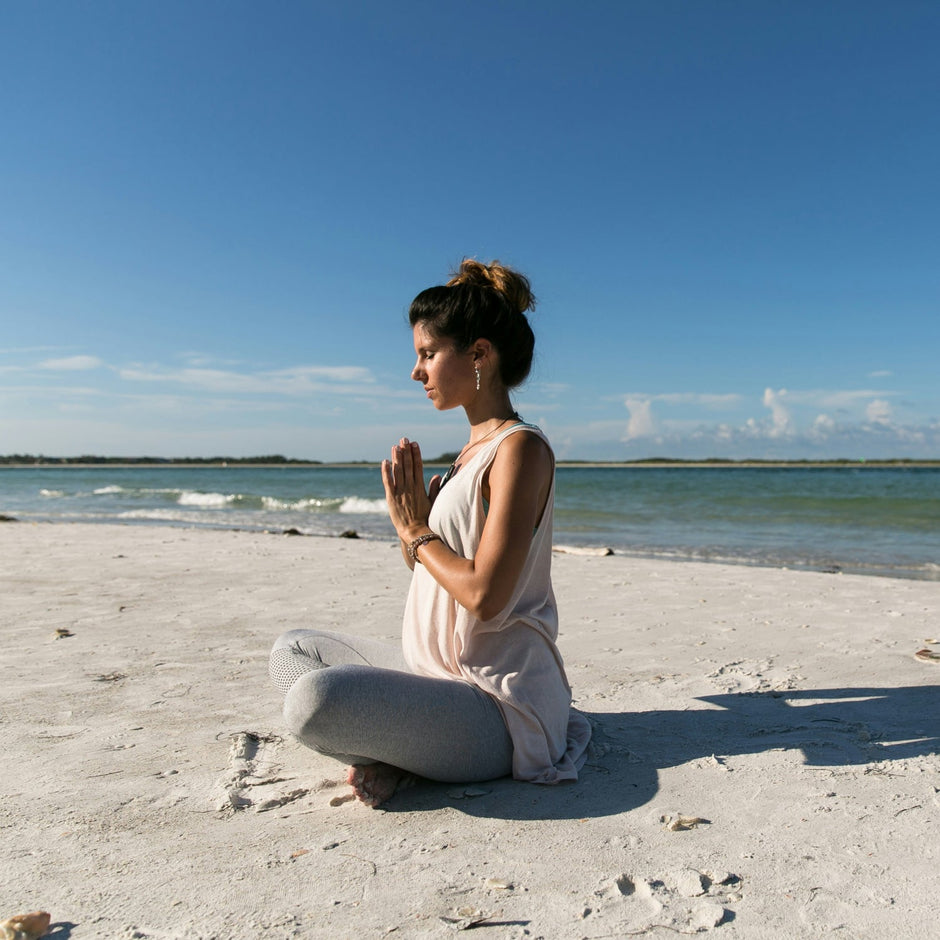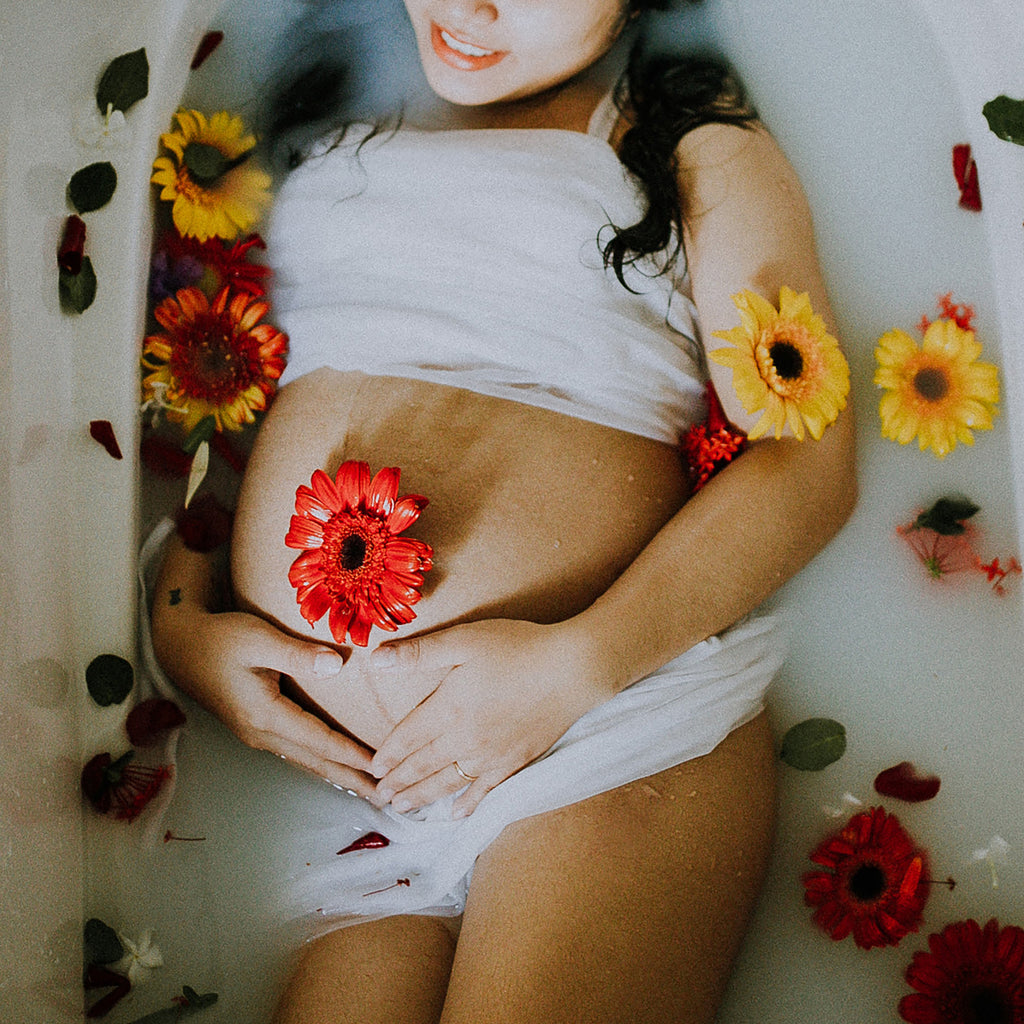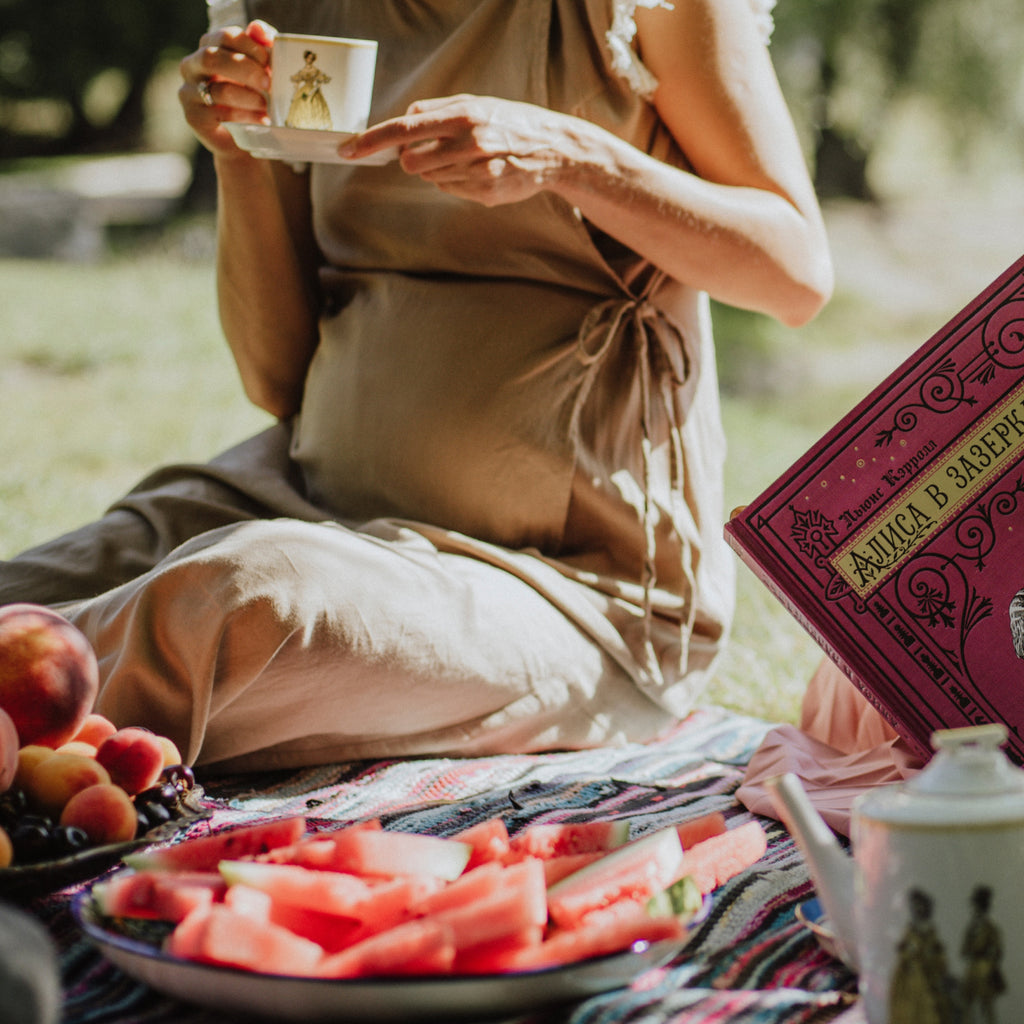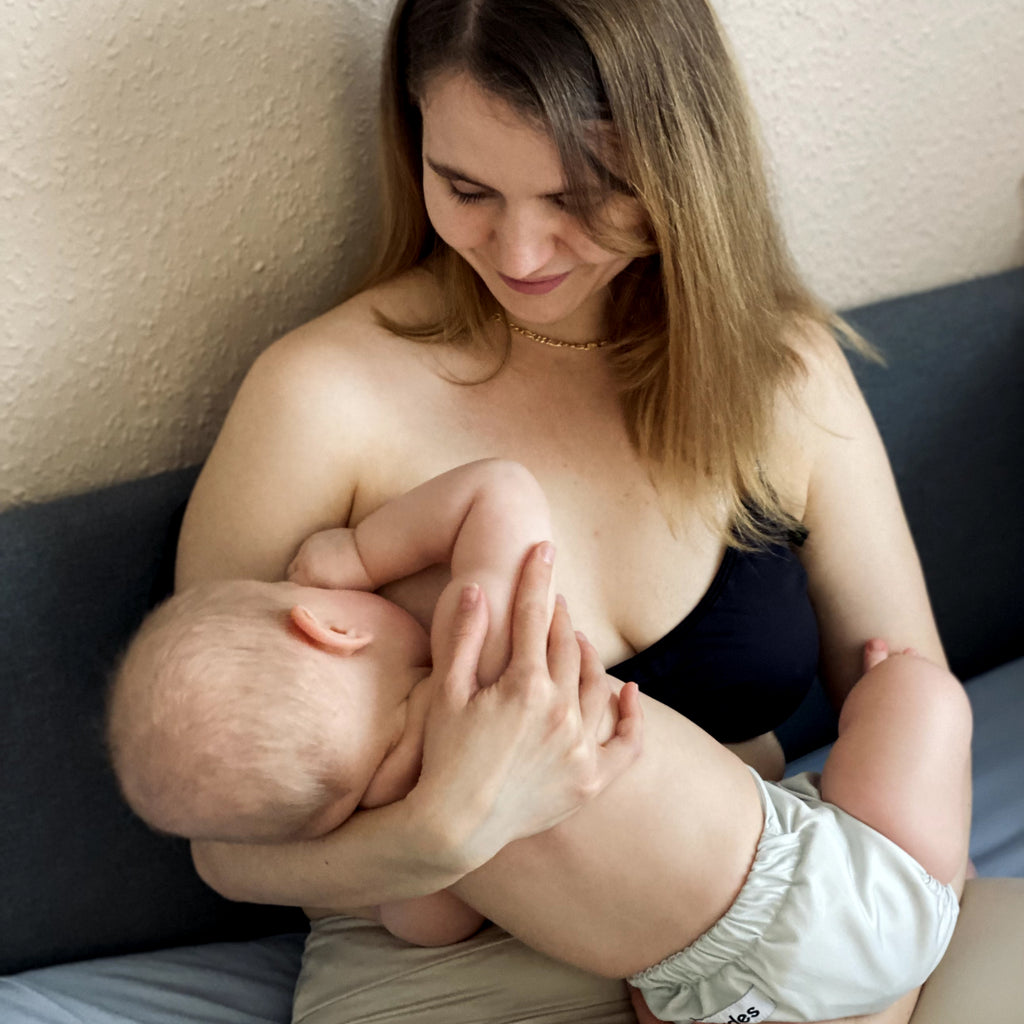Yoga and Meditation: Your Path to a Relaxed and Healthy Pregnancy
Updated on:
Photo by Amelia Bartlett on Unsplash
Pregnancy – a time full of wonders, changes, and challenges. In this special phase of life, it is more important than ever to take care of body and mind. Yoga and meditation provide the ideal framework. They are not only gentle ways to promote physical health but also effective methods for mental relaxation.
How does yoga support pregnancy? Yoga during pregnancy goes beyond mere movement – it is a comprehensive practice that connects and harmonizes body, mind, and soul. Through gentle stretches and targeted breathing exercises, tensions are released and well-being is increased. Yoga helps to better manage the physical changes during pregnancy and prepares the body optimally for childbirth.
Meditation, on the other hand, is a valuable tool to find inner peace and calmness. It enables expectant mothers to build a deep connection with themselves and their unborn child. Through meditation, fears and stress can be reduced, which positively affects the mother's well-being and the baby's development.
In combination, yoga and meditation offer a comprehensive approach to experience pregnancy in a healthy, relaxed, and conscious way.
Why relaxation during pregnancy is so important
Pregnancy is a time of great emotional and physical changes, which can significantly affect the psyche of the expectant mother. Emotional balance is therefore important to navigate this phase healthily and happily. Relaxation practices such as yoga and meditation play a major role in this. They help to alleviate mood swings during pregnancy, improve sleep, and strengthen the connection between mother and unborn child.
How stress during pregnancy affects the baby
Stress during pregnancy is not only a burden for the mother but also for the baby. Experience shows that prolonged stress can impair the development of the unborn child and increase the risk of various health problems. Hormones like cortisol can penetrate the placental barrier and directly affect the unborn baby, which can lead to a lower birth weight or premature birth.
A relaxed mother, on the other hand, promotes the well-being and healthy development of the baby. Through targeted relaxation techniques, the expectant mother can not only reduce her own stress levels but also create a calm environment for her child.

Photo by Anthony Tran on Unsplash
Ways to more calmness and well-being during pregnancy
When seeking ways to more calmness and well-being during pregnancy, it is important to pay attention to your own limits and needs. Every pregnancy is unique, and what works for one person might not be ideal for another. It is advisable to consult with your doctor before starting a new relaxation or exercise program. Generally, it's wise to choose gentle and non-straining practices that soothe body and mind without overburdening them.
Options for pregnant women
Some of the most popular ways to promote calmness and well-being during pregnancy include:
- Yoga: Yoga offers a variety of gentle exercises specifically designed for pregnant women. These exercises strengthen the body, improve flexibility, and promote circulation while simultaneously reducing stress.
- Meditation and breathing exercises: Techniques such as guided meditations or conscious breathing can help calm the mind and find inner peace. They are easy to learn and can be practiced anywhere.
- Walks in nature: Regular walks, especially in quiet, green surroundings, can work wonders to relax the mind and strengthen the connection to nature.
- Pregnancy massages: Special pregnancy massages can help release tension and improve overall well-being.
- Mindfulness exercises: Practices like mindfulness meditation or keeping a gratitude journal can help enjoy the moment and promote positive thoughts.
These techniques provide valuable tools for expectant mothers to relax and feel good during their pregnancy. At the same time, they prepare for a positive birth experience.
Yoga: Which exercises are particularly suitable?
Yoga should be aligned with the different stages of pregnancy to maximize safety and benefits for mother and child:
- First trimester: It is important to start gently in this phase. The focus should be on relaxation and breathing exercises that help strengthen the connection to your body and the baby. Light stretches can also be integrated.
- Second trimester: Now that the body is beginning to change more noticeably, strengthening exercises can be added. Poses that promote balance and strengthen the leg muscles are particularly beneficial.
- Third trimester: The focus is on preparing the body for childbirth. Exercises that relieve the lower back and open the pelvis are recommended. It is important to avoid overexertion and listen to your body.
Yoga as birth preparation
Yoga can be an excellent method to prepare body and mind for childbirth. Exercises that open the hips and strengthen the pelvic floor muscles can be helpful in preparing the body for birth and the time afterward. At the same time, breathing exercises support managing pain during labor and focusing on the birth process.
What should I consider & which exercises should I avoid?
There are some important guidelines that expectant mothers should consider when practicing yoga:
- Avoid exercises that strongly challenge balance or could cause falls.
- Exercises on the back should be avoided from the second trimester to prevent pressure on the vena cava.
- Intense abdominal exercises, deep twists, and strong backbends should be avoided as they can compress the abdominal area.
- It's important to listen to your own body and stop immediately if there is discomfort or pain.
The safety of mother and baby is always the top priority. A qualified yoga instructor for prenatal yoga can help create a safe and effective program.

Photo by Juli Kosolapova on Unsplash
Meditation: Inner calm for mom & baby
Meditation is a powerful tool for expectant mothers to find inner peace and calmness. In a phase of life often marked by uncertainties and physical changes, meditation provides a calm anchor. It helps to reduce stress, alleviate fears, and promotes a deeper self-awareness. Regular meditation can improve sleep, stabilize mood, and enhance overall well-being. Most importantly, it helps pregnant women foster a conscious and positive connection to their body and the growing life within them.
How does meditation positively affect the baby?
The benefits of meditation for pregnant women also transfer to the baby. Experience shows that a calm and relaxed mental state of the mother has a positive influence on the development of the baby. The calming effects of meditation, such as the reduction of stress hormones, can create a harmonious environment for the baby. This promotes healthy development and can even contribute to calmer behavior after birth. Through meditation, the mother can build a deeper emotional bond with the baby, which is a valuable experience for both.
How to find the right meditation
The search for a suitable meditation technique during pregnancy should be based on personal preferences and needs. There is no "one-size-fits-all" solution, so it's important to try different methods to find out what works best for you. Beginners can start with guided meditations specifically designed for pregnant women. These are often found in apps, on YouTube, or in online courses. Experienced meditators can delve deeper into specific practices such as mindfulness meditation or mantra meditation.
Tips and tricks for meditating at home
Practicing meditation at home can be particularly comfortable and effective. Here are some tips to create a suitable environment:
- Quiet space: Choose a quiet, comfortable place in your home that is free from distractions.
- Regularity: Try to meditate at fixed times to develop a routine.
- Comfortable seating position: Use cushions or a yoga mat to find a comfortable sitting or lying position.
- Soft background music or nature sounds: These can help create a calming atmosphere and focus the mind.
- Short sessions: Start with short meditation sessions of 5 to 10 minutes and gradually increase the duration.
- Breathing exercises: Incorporate simple breathing exercises to relax and improve focus.
- Apps and online resources: Use digital tools to find guided meditations specifically tailored for pregnant women.
By integrating these practices into their daily lives, pregnant women can experience the many benefits of meditation and find deep inner peace that benefits both themselves and their baby.

Photo by @ablondegirlsjourney
Judes Cloth Diapers: Sustainable Care in the World of New Life
Pregnancy is a time of change, not only for the body and mind of the expectant mother but also in preparing for a new life with the baby. Just as yoga and meditation play an important role in well-being during pregnancy, it is also crucial to think about the time after birth. This is where Judes comes into play.
Judes stands for a simple, sustainable, and health-conscious approach to baby care. With the development of our unique cloth diapers, we have created a solution that is both environmentally friendly and practical for young parents. Judes are not only easy to use but also stylish and comfortable for the baby. The voices from the Judes community are clear:
"Simple, sustainable diapering, and the covers look so beautiful 🥰! Baby feels comfortable, and sore spots are a thing of the past."
(Anonymous)
"We initially used disposable diapers but switched to Judes cloth diapers after a few months - and that was the best decision! The quality is excellent, they are environmentally friendly, and definitely more cost-effective in the long run. We really can't imagine anything else anymore. Absolutely would recommend!"
(Christine Hoffmann)
Using Judes is a step towards environmentally conscious parenting. It reflects the same values of mindfulness and care that are also found in practices like prenatal yoga and meditation. Choosing Judes cloth diapers means choosing a sustainable future and the well-being of one's child. It is a conscious choice that carries the spirit of mindfulness and health cultivated during pregnancy into the early years of the child.
With Judes, new parents can be confident that they are doing the best for their baby and also making a positive contribution to environmental protection. Just as yoga and meditation help promote a healthy mind and body, Judes cloth diapers help create a healthier and greener world for the next generation.
Not sure if cloth diapers are right for you? With our trial package, you have the chance to test Judes with no strings attached.

